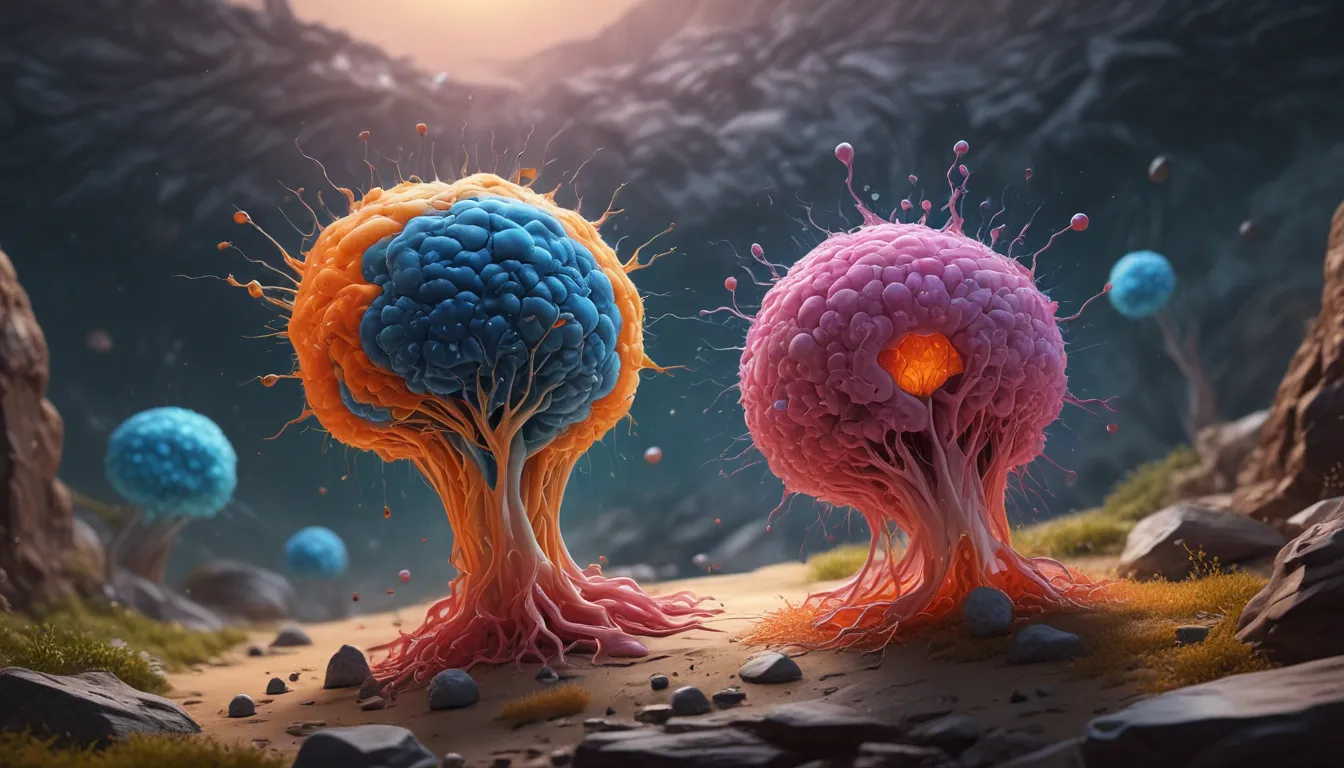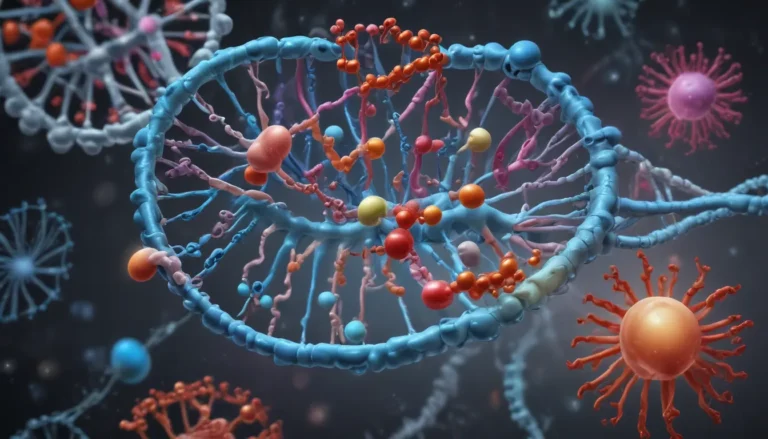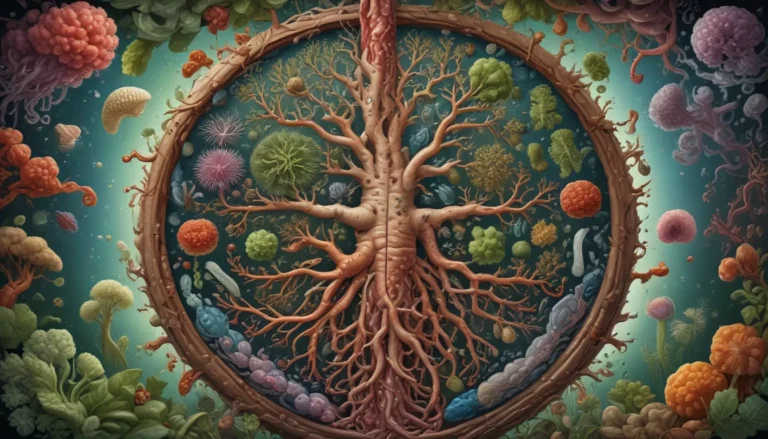A Note About Images: The images used in our articles are for illustration purposes only and may not exactly match the content. They are meant to engage readers, but the text should be relied upon for accurate information.
Progenitor cells, a unique type of stem cell, have captivated researchers worldwide with their remarkable abilities in tissue repair and regeneration. In the realm of regenerative medicine, these superhero cells hold the key to novel therapeutic approaches for various diseases and injuries. Delve into the intriguing world of progenitor cells as we uncover 19 captivating facts that shed light on their characteristics, functions, and potential applications.
Progenitor Cells: The Architects of Tissue Regeneration
Progenitor cells, a type of stem cell, possess the remarkable capacity to differentiate into specific cell types, playing a vital role in repairing and regenerating damaged tissues and organs.
Distinct from Embryonic Stem Cells
Unlike embryonic stem cells, which can develop into any cell type in the body, progenitor cells are more specialized and can only differentiate into specific cell types within a particular tissue.
Progenitor versus Adult Stem Cells
Progenitor cells differ from adult stem cells as they have a more limited ability to self-renew. While adult stem cells can continuously self-renew, progenitor cells have a restricted capacity for division.
The Versatility of Progenitor Cells
These amazing cells can be found in various tissues throughout the body, including the blood, skin, liver, brain, and skeletal muscles.
Guardians of Tissue Repair
When tissue damage occurs, progenitor cells are mobilized to the site of injury where they differentiate to replace damaged cells, promoting tissue repair and regeneration.
Pioneers of Development
During early development, progenitor cells are essential in the formation and growth of specific tissues and organs, ensuring proper embryonic development.
Orchestrating Differentiation
The differentiation of progenitor cells into specific cell types is tightly regulated by a complex network of molecular signals and gene expression patterns.
Nurturing Neurogenesis
In the brain, progenitor cells in specific regions generate new neurons through a process called neurogenesis, contributing to learning, memory, and brain health.
Beacon of Hope in Cardiac Regeneration
Although the heart has limited regenerative capacity, studies have identified progenitor cells in the heart, hinting at their potential to treat heart conditions.
Fountain of Blood
Progenitor cells in the bone marrow give rise to various blood cell types, including red blood cells, white blood cells, and platelets.
Unmasking the Connection to Cancer
Alterations in progenitor cell behavior can contribute to certain cancers, offering insights into cancer biology and potential therapeutic strategies.
Aging Gracefully
As we age, the regenerative capacity of progenitor cells declines, prompting research into age-related diseases and interventions to promote healthy aging.
Healing Hands of Regenerative Therapies
Progenitor cells hold immense potential for treating organ damage, neurodegenerative disorders, and cardiovascular conditions through regenerative therapies.
The Art of Manipulation
Scientists are exploring ways to manipulate and harness progenitor cells in tissue engineering, organ transplantation, and regenerative medicine for improved medical interventions.
Paving the Way for Drug Discovery
Progenitor cells serve as valuable tools in drug discovery, helping to screen potential therapeutic compounds and assess their effectiveness in promoting cell differentiation.
Decoding Developmental Disorders
Studying progenitor cell behaviors provides insights into developmental disorders and birth defects, leading to advancements in diagnosis and treatment.
Genetics and Progenitor Cell Function
Genetic factors play a significant role in shaping the behavior and function of progenitor cells, offering insights into cellular differentiation and tissue regeneration.
Transplanting Tomorrow
Transplanting progenitor cells into damaged tissues or organs shows promise as a targeted and regenerative treatment option for various conditions.
Envisioning the Future of Progenitor Cell Research
Continual advancements in technology and research techniques drive the evolution of progenitor cell studies, unveiling new possibilities for transformative therapies.
As we journey through the world of progenitor cells, their immense potential for revolutionizing regenerative medicine becomes apparent. These 19 captivating facts merely scratch the surface of their extraordinary capabilities. The relentless pursuit of knowledge in progenitor cell research presents an opportunity to unlock the secrets of these cells and pave the way for groundbreaking medical advancements.
In Conclusion
Progenitor cells occupy a pivotal role in biology, offering transformative possibilities in tissue repair and disease treatment. Whether it’s their regenerative potential, differentiation capacity, or suitability for transplantation, progenitor cells stand poised to shape the future of healthcare. Through persistent research and technological advancements, scientists unravel the complexities of progenitor cells, paving the way for novel therapies and improved patient outcomes.
Frequently Asked Questions
-
What are progenitor cells?
Progenitor cells are a specialized type of stem cell that can differentiate into specific cell types within a defined lineage, contributing to tissue repair and regeneration. -
How do progenitor cells differ from embryonic stem cells?
Progenitor cells are more restricted in their differentiation potential compared to embryonic stem cells, which have the capacity to develop into any cell type in the body. -
Can progenitor cells be used for medical treatments?
Yes, progenitor cells offer promising avenues for treating diseases by replacing damaged or diseased cells in targeted tissues through regenerative approaches. -
Where are progenitor cells located in the body?
Progenitor cells are distributed in various tissues and organs, residing in specific niches where they contribute to tissue maintenance and repair. -
Are progenitor cells the same as adult stem cells?
Progenitor cells and adult stem cells share the ability to differentiate into specialized cell types, but progenitor cells are more committed to specific lineages compared to adult stem cells.
Progenitor cells, with their captivating allure, hold the potential to drive profound discoveries in regenerative medicine. By unraveling the mysteries of cell differentiation, we gain insights into their transformative applications. Tissue engineering, developmental biology, and drug discovery are just some of the fields enriched by the unique properties of progenitor cells. As we embrace the evolving landscape of progenitor cell research, we embark on a journey towards unlocking the secrets of human biology and advancing healthcare for generations to come.






